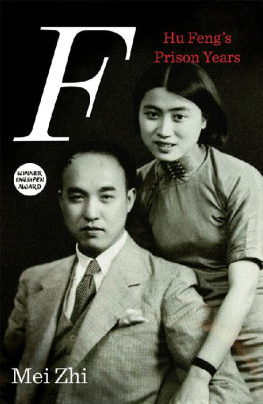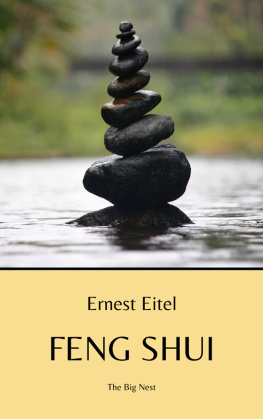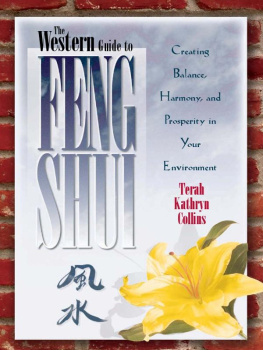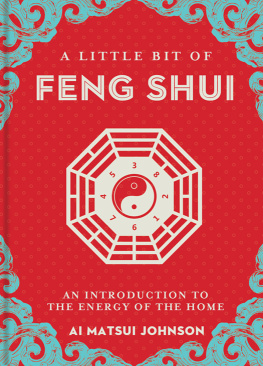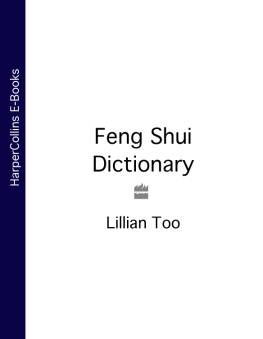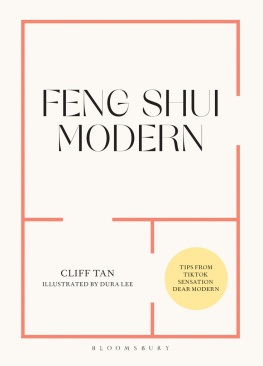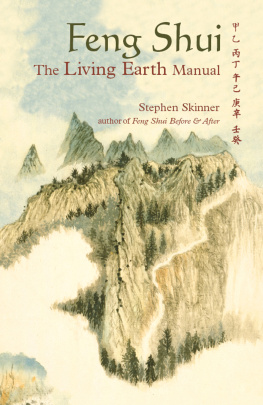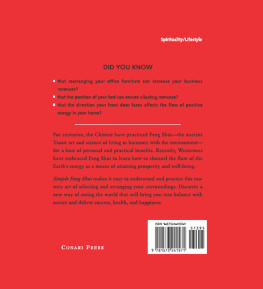Mei Zhi - F: Hu Feng’s Prison Years
Here you can read online Mei Zhi - F: Hu Feng’s Prison Years full text of the book (entire story) in english for free. Download pdf and epub, get meaning, cover and reviews about this ebook. year: 2013, publisher: Verso, genre: Detective and thriller. Description of the work, (preface) as well as reviews are available. Best literature library LitArk.com created for fans of good reading and offers a wide selection of genres:
Romance novel
Science fiction
Adventure
Detective
Science
History
Home and family
Prose
Art
Politics
Computer
Non-fiction
Religion
Business
Children
Humor
Choose a favorite category and find really read worthwhile books. Enjoy immersion in the world of imagination, feel the emotions of the characters or learn something new for yourself, make an fascinating discovery.
- Book:F: Hu Feng’s Prison Years
- Author:
- Publisher:Verso
- Genre:
- Year:2013
- Rating:4 / 5
- Favourites:Add to favourites
- Your mark:
- 80
- 1
- 2
- 3
- 4
- 5
F: Hu Feng’s Prison Years: summary, description and annotation
We offer to read an annotation, description, summary or preface (depends on what the author of the book "F: Hu Feng’s Prison Years" wrote himself). If you haven't found the necessary information about the book — write in the comments, we will try to find it.
F: Hu Feng’s Prison Years — read online for free the complete book (whole text) full work
Below is the text of the book, divided by pages. System saving the place of the last page read, allows you to conveniently read the book "F: Hu Feng’s Prison Years" online for free, without having to search again every time where you left off. Put a bookmark, and you can go to the page where you finished reading at any time.
Font size:
Interval:
Bookmark:
F
HU FENGS PRISON YEARS
MEI ZHI
Edited and translated by Gregor Benton

Contents
1965. It was ten years since Hu Feng had been arrested at home and taken into custody. I had been restored to freedom more than four years earlier, but for a decade I had not seen him once, nor exchanged a letter with him. I didnt even know where he was. Immediately after my release, I asked about him at the Ministry of Public Security. They said he was well. I said I wanted to send him some clothes, but they told me it was unnecessary. I asked if they could pass on a letter. They said it might adversely affect his reform. After that, I no longer had the courage even to ask. When friends and acquaintances enquired, I would shake my head and whisper, I dont even know where he is.
In 1962 people started talking. My daughter heard about it on her farm and came home to tell me. She said they might soon deal with the contradictions among the people in the literary world and let him go. That was good news, but I had no way of discreetly enquiring whether it was reliable. All I could do was wait.
In May 1965, I received a letter. It was in an ordinary white envelope with a flower printed in the corner. Unusually, however, the address was written with a brush pen. The hand was dignified and skilled, not slavishly copied from a primer by some young man or woman with a smattering of culture, but the work of a practised calligrapher. It must have been from an old friend, for the writer had used my original name. There was no senders address, just the words posted in Beijing. Which of my old acquaintances knew where I lived?
I suddenly remembered Mr Sha, who we didnt know particularly well. He looked like a typical intellectual. He was learned, and therefore popular among some intellectuals who had come across from the old society. After we moved to Beijing, he sometimes used to visit us to play chess with F or chat about classical literature. Needless to say, they sometimes grumbled. I didnt know at the time if he ever became implicated when we later got into trouble.
I had gone to the Fulong Temple on the eve of Spring Festival a few months back to buy some small gifts for the children. Coming towards me in the bustling crowd was a familiar face. I realised from the way he dressed that it was Mr Sha. He was still wearing his fine overcoat, tailored from good material. His spectacles, short beard, and classical writers manner had not changed, but he was more stooped than in the past. He was carrying a big bundle of books wrapped in cloth. Obviously he had just come from the second-hand bookstore. I tried to avoid his eyes, but he had seen me. He came towards me with a look of such delight that I had to greet him. He said in a low voice:
I hope youre both well. Hows Old Hu?
I answered, also in a low voice:
Things are all right. I know nothing about his situation.
Instead of rushing off, he accompanied me to a quieter place, and we ended up in a road behind the temple.
I was surprised to see the little lanes behind Fulong Temple were so quiet and well swept. There were just a few passers-by. It was another world from the road outside. Perhaps the residents did their shopping on the main street.
We walked and talked in the lanes, out of the wind.
He told me how concerned friends had been about us. Later, he heard I had been released. He said how distressed he was when he couldnt discover my address. He said he had been isolated and put under investigation for more than a year because of his association with Hu Feng. Not until later, when it was determined there had been no link, did they decide not to class him as an element.
He made as if to laugh, but his face did not laugh.
I said, In 1958, when I was under detention, I heard you talking on the radio about classical poetry. Your recital moved me deeply. It was as if I was back among people. It made me think of my childhood, when I used to read classical poetry. Unfortunately, I never heard any more broadcasts. I thought you must have managed to avoid getting implicated. That made me happy.
How long were you in detention?
Seventy months. They let me out in 1961 when my mothers remains were placed in the hospital mortuary, so I could take care of the funeral. After that they didnt lock me up again.
How about your life now? Is someone looking after you?
Im looking after myself.
Nie Gannu and his wife are very concerned about you. Sos Old Tian. I heard youd been released, but the building in which you used to live was pulled down long ago. Later, we heard you were living somewhere around Shaojiu Lane. Old Tian often went there for a stroll, in the hope of bumping into you. Someone said youd moved out into the suburbs, but no one knew where.
Thats right. Later, I moved to Chaoyang Menwai. I wanted to change the topic, so I asked:
Are you all right now? Why have you not been back on the radio?
Its a long story. Im at Shuangqiao State Farm. Theyre giving me time off for family business.
He seemed to notice my surprise, and added, Its not important, nothing political. They say Im a fake doctor and Im harming my patients. They say Im practising without a licence. Lets not talk about it. Perhaps it will be over in a few months and theyll let me go home. Theyre still allowing me to examine reform-through-labour prisoners. I have my own room, only I no longer get paid. He gestured at his bundle: Today Ive come to sell my books. Ive already sold all the best ones. These are the ones they dont want.
I looked at the bundle and felt sorry for him, but he didnt seem to mind. He said, Its no problem. Mother and the children get living expenses anyway. Im just trying to get some money.
I admired his tenacity. However, I felt it unwise to stay too long in the deserted lane. I told him I needed to return to the market to do some shopping. But he held me back:
First leave me an address.
He fished a ballpoint from one pocket and an envelope from the other. Indicating the envelope, he said with a smile:
See, Shuangqiao State Farm.
I had no choice but to write down my address. However, I told him I never received guests and was living with my younger son. My daughter was working as a farm labourer in the suburbs and usually there was only me, I was often out buying food and not necessarily in the house. We hurriedly parted.
I had given my address to a few acquaintances, including my brothers son, but nobody had ever come to see me or written to me. I had long since forgotten about the encounter at the Fulong Temple.
Now, three or four months later, staring at the careful writing on the envelope, I couldnt help thinking back on that meeting. Perhaps it was from Mr Sha? I opened it. But it was from another friend, Qin, who had probably got the address from Sha.
The letter read, Qin asks you to go to the Peace Restaurant at three oclock on such-and-such a day for a cup of coffee.
Should I go? The only person I could have discussed it with was my younger son. The child had long forgotten his fathers friends, so what could he say? I had to make my own decisions about everything. Even so, I showed him the letter. He thought it wouldnt do any harm. He told me to be careful not to say too much and to be aware of the surroundings. He was trying to join the Young Communist League, so as an ordinary person who had made mistakes I would do well to follow his advice.
I made my way to the Peace Restaurant at Dongan Market. I spied a tall thin man at the door. It was Old Nie. I hurried across and we smiled at one another.
Did you guess? he asked.
Who else could it have been?
Lets go in and sit down.
Such a luxurious place? Why dont we go for a walk instead. Ive never been in such a place.
Next pageFont size:
Interval:
Bookmark:
Similar books «F: Hu Feng’s Prison Years»
Look at similar books to F: Hu Feng’s Prison Years. We have selected literature similar in name and meaning in the hope of providing readers with more options to find new, interesting, not yet read works.
Discussion, reviews of the book F: Hu Feng’s Prison Years and just readers' own opinions. Leave your comments, write what you think about the work, its meaning or the main characters. Specify what exactly you liked and what you didn't like, and why you think so.

